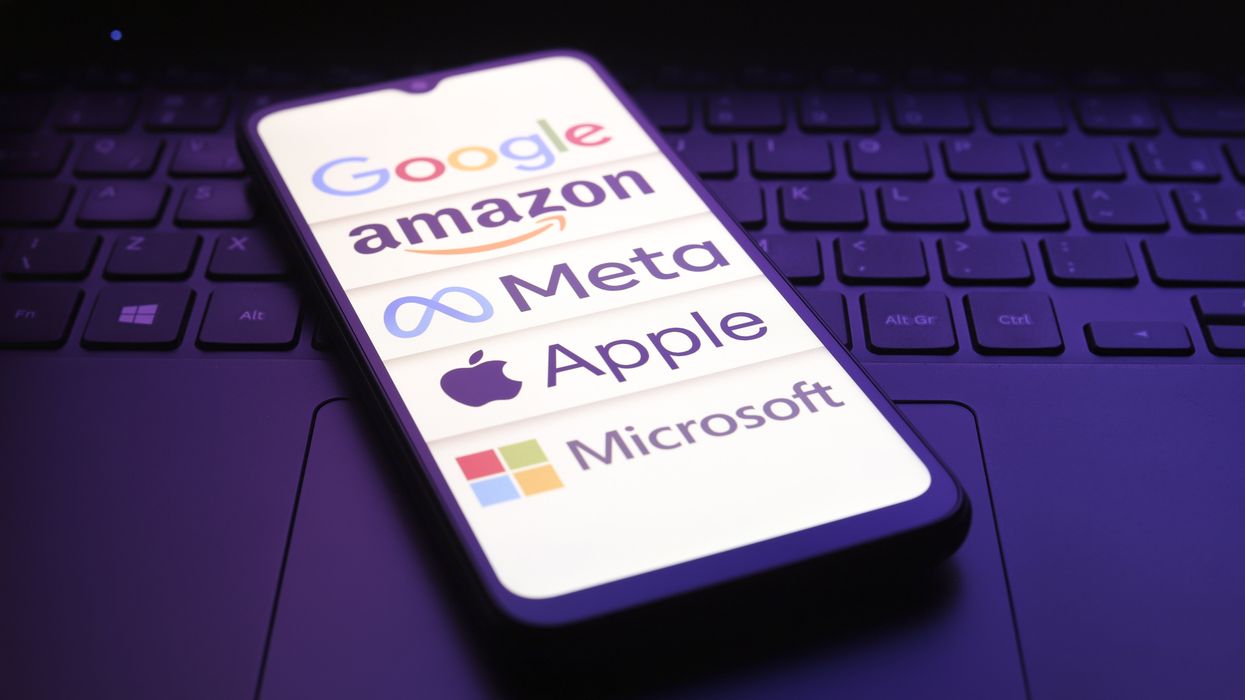This is the second entry in “ Big Tech and Democracy,” a series designed to assist American citizens in understanding the impact technology is having — and will have — on our democracy. The series explores the benefits and risks that lie ahead and offers possible solutions.
Industrial liberty — once a cornerstone of American antitrust policy — has faded into obscurity in the shadow of Big Tech’s overwhelming dominance. In short, industrial liberty refers to your ability to use and benefit from your skills, your knowledge and your passion. It manifests as entrepreneurs and small-business owners, through patents and innovations, and as everyday folks finding good work every day. This erosion of this specific sort of liberty not only undermines the principles of competition but also stifles the aspirational spirit that has for so long distinguished the American public.
By concentrating power and leveraging their dominance to crush competition, companies like Amazon, Google and Meta suppress industrial liberty, extinguishing the incentive for new entrants to challenge the status quo. The result? An economy that serves entrenched monopolies instead of fostering opportunity.
Historically, the public interest standard set forth in Section 5 of the Federal Trade Commission Act was intertwined with industrial liberty. Drafters of the FTC Act wanted to make sure the agency prioritized enforcement actions that had wide-reaching ramifications and that, once resolved, would further industrial liberty. As figures like Justice Louis Brandeis emphasized, this broader policy approach was not just about preventing excessive prices or abusive practices; it was about empowering individuals — producers, workers and consumers alike — to thrive on a level economic playing field. Industrial liberty ensured that individuals could apply their talents and ambitions without being stymied by monopolistic giants. Yet today, the focus of antitrust enforcement has veered away from this principle, favoring superficial metrics and toothless regulatory action that allow Big Tech to dominate unimpeded.
This shift is exemplified in the Federal Trade Commission’s diminishing adherence to its statutory mandate to act only in cases that serve a “specific and substantial” public interest. As Brandeis asserted, this standard requires more than avoiding private disputes; it demands a clear and measurable benefit to the public. Unfortunately, modern antitrust enforcement often appears blind to this mandate, pursuing cases that fail to directly confront Big Tech’s stranglehold while draining resources on marginal players. When they do seek out Big Tech, enforcers have commonly relied on questionable legal theories with low odds of success. This combination of strategies has left Americans in an undesirable position.
Consider the FTC’s recent complaint against a small generative AI developer accused of enabling deceptive product reviews. The case lacked any evidence of actual harm, let alone a substantial public interest rationale. Meanwhile, tech behemoths use their dominance to undermine competition in emerging markets like artificial intelligence. Instead of targeting these systemic threats, the FTC’s actions often discourage small-scale innovation — precisely the opposite of what industrial liberty aims to protect.
Big Tech’s behavior exemplifies the need for a renewed commitment to industrial liberty. These companies don’t just compete; they engulf entire industries, leveraging their ecosystems to deter rivals. The ease with which you find yourself buying products on Amazon, searching on Google or scrolling on Meta's platforms are all indicative of markets being saturated by a handful of major players. This market ecosystem not only limits consumer choice but oftentimes also discourages potential competitors from entering the market, fearing insurmountable barriers.
Restoring industrial liberty requires regulatory courage. Antitrust enforcement must shift its focus back to creating space for new competitors, especially in emerging industries like AI and renewable energy. By applying the public interest standard rigorously and targeting enforcement against the most egregious anti-competitive behaviors, regulators can foster a climate of innovation and opportunity.
Congress, too, has a role to play. The lawmakers who championed antitrust legislation in the early 20th century recognized that economic concentration posed a threat not just to markets but to democracy itself. Their vision of industrial liberty as a pillar of American life must guide modern legislative efforts. Proposals to curb Big Tech’s market power, such as limiting acquisitions of nascent competitors or imposing stricter interoperability requirements, align with this tradition.
The erosion of industrial liberty is not merely an economic issue; it is a democratic one. A society that tolerates monopolistic dominance is one where individual initiative and creativity are subordinated to corporate power. Reviving the principles of industrial liberty would not only enhance economic dynamism but also reaffirm the democratic values that underpin American antitrust law.
Realization of those ends, however, does not require revolutionary means. We don't need to bankrupt Big Tech but merely reorient it around the values these companies claim as their own. It should not be forgotten that many of these companies have greatly increased our collective capacity to learn, to explore and to connect. They directly employ thousands and have positive economic impacts on many more. And, in many cases, they have used their successes to benefit their surrounding communities. The issue is that we can and should expect Big Tech to do all these things at an even greater scale. The exceptional things should be the norm.
The FTC, Congress and the courts must embrace this challenge. By restoring industrial liberty as the guiding principle of antitrust enforcement, they can dismantle the barriers that Big Tech erects and pave the way for a new generation of entrepreneurs. The stakes are clear: Either we reclaim industrial liberty as a cornerstone of our economy, or we allow Big Tech to stifle the entrepreneurial spirit that defines the American dream.
Frazier is an assistant professor at the Crump College of Law at St. Thomas University and a Tarbell fellow.






















Trump & Hegseth gave Mark Kelly a huge 2028 gift